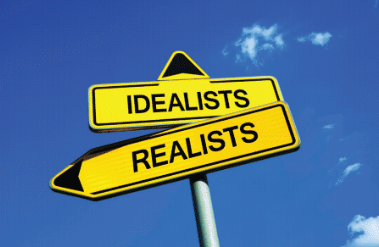Utopia in Literature
Early utopias were usually very idealistic and perfect, where all the evils of society had been removed. The earliest examples, such as those of Plato and Cicero, were more exercises in philosophical argument than novels as such, and were not necessarily written with either the practicability of the system or the entertainment value of the writing in mind. Typically, the plot revolved around a visit to, or a shipwreck on, a newly-discovered island, long isolated from the rest of civilization. However, what distinguishes utopian literature from a political or philosophical treatise is the attempt to weave the discussion of an idealized social setup into the form of a novel, containing individual characters with whom we can empathise or disapprove of, and at least a rudimentary plot progression. Some utopian authors were influenced by the ideas of the 18th century philosopher Jean Jacques Rousseau about an ideal Arcadian society, or Golden Age, which was thought to have existed in ancient times before the development of civilization corrupted it. Henry David Thoreau (particularly in his Walden reflections) was another big inspiration. Some had more overtly political leanings, and were influenced by the 19th century revolutionary writings of Karl Marx and Friedrich Engels. The genre of scientific romance developed during Victorian times, a precursor to 20th century science fiction and speculative fiction. In the late 19th and 20th centuries, a more satirical variant of utopian literature, known as the anti-utopia or dystopia - for example, George Orwell’s 1984 or Aldous Huxley’s Brave New World - became increasingly popular, often as a direct response to the harsh economic conditions of the 19th century, industrialization, and rampant capitalism. Gradually, the distinction between utopian and science fiction literature became increasingly blurred, and many, if not most, sci-fi novels contain at least some elements of utopian or dystopian ideas. However, many modern utopias and dystopias are maybe better described as “speculative fiction” rather than science fiction. Often, they do not necessarily involve the invention or anticipation of futuristic technologies, but feature extrapolations or exaggerations of the possible effects of currently available technologies. (Reading text adapted from utopianfiction)

